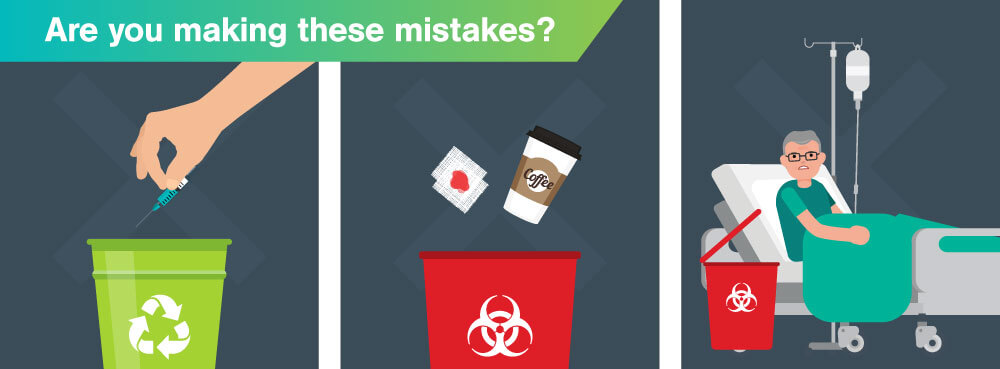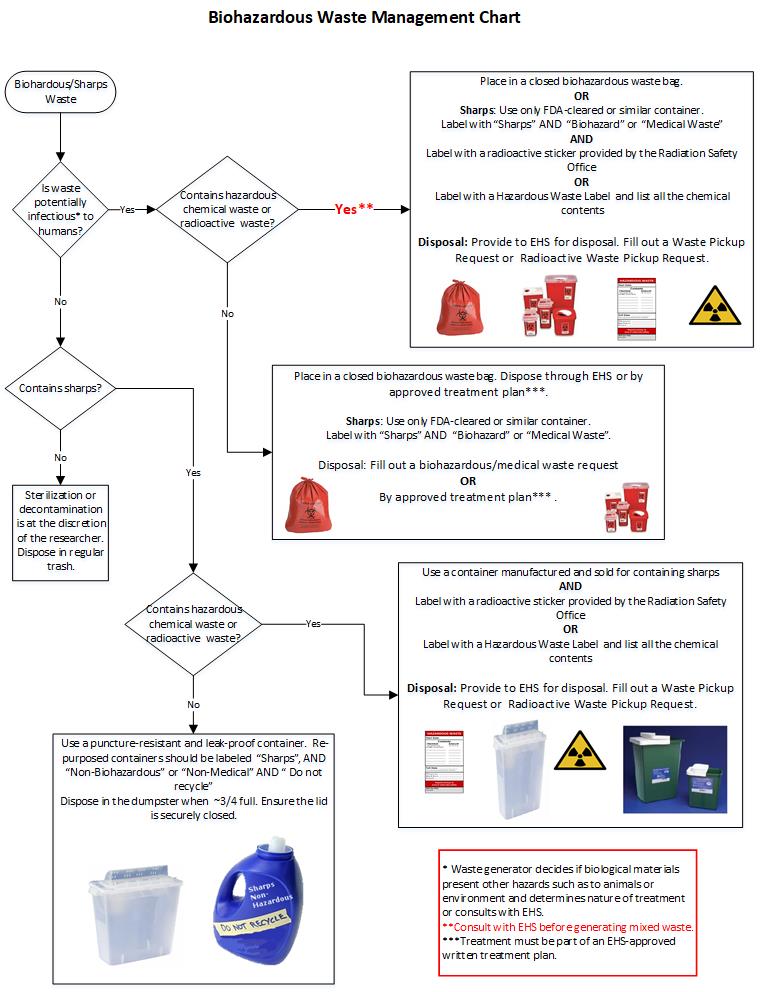Eco-Friendly Solutions for Medical Waste Removal: Prioritizing Safety And Security and Compliance
Finest Practices for Medical Waste Administration
Clinical waste monitoring is an essential facet of health care facilities' operations to guarantee the safety and security of patients, personnel, and the setting. Executing finest techniques in medical waste management is crucial to reduce the dangers associated with unsafe waste.
Partition and Classification
In the field of medical waste management, proper partition and classification are crucial practices for guaranteeing the efficient and risk-free disposal of healthcare-related materials. Medical waste is created from various resources, consisting of medical facilities, clinics, research laboratories, and various other medical care facilities. It contains a vast array of items, such as needles, syringes, bandages, handwear covers, and pharmaceutical waste.
Partition entails the organized splitting up of various kinds of medical waste based on their characteristics and potential dangers. Sharps waste, such as needles and blades, should be positioned in puncture-resistant containers to prevent injuries and the spread of infectious illness.
Categorization is the procedure of classifying clinical waste right into various categories based upon its possible dangers. WasteX Medical Waste Disposal. These groups might consist of infectious waste, contaminated materials, pharmaceutical waste, and general waste. By categorizing waste, medical care centers can identify the ideal disposal methods and ensure conformity with neighborhood regulations and standards
Proper partition and classification of medical waste not only secure the health and wellness of health care workers and the public yet also add to the general effectiveness and efficiency of waste administration. It decreases the danger of accidents, minimizes environmental influences, and promotes responsible garbage disposal practices.
Appropriate Storage Space and Labeling
To ensure the secure and effective disposal of clinical waste, medical care facilities have to stick to proper storage space and labeling methods. Appropriate storage space and labeling play a crucial role in preserving the honesty of medical waste administration systems and safeguarding the health and wellness of health care employees, patients, and the basic public.
When it concerns storage space, it is important to have assigned locations especially created for various kinds of clinical waste. These areas ought to be safe, well-ventilated, and outfitted with appropriate containers that meet regulative standards. Partition and categorization of waste must additionally be taken right into factor to consider to prevent cross-contamination and prospective hazards.
In addition, appropriate labeling is vital for reliable waste administration - medical waste disposal service. Each container needs to be clearly identified with the ideal symbols, color-coding, and details concerning the waste it contains.
Normal surveillance and examination of storage space locations and containers are necessary to determine any kind of problems or violations. Personnel ought to be educated on correct storage space and labeling practices, highlighting the value of compliance with policies and methods.
Safe Transport and Handling
Guaranteeing the protected and appropriate transport and handling of medical waste is vital for preserving the stability of waste monitoring systems and guarding the health and wellness and safety and security of all involved. Medical waste, which includes products polluted with contagious materials, pharmaceuticals, and various other hazardous compounds, must be moved in a manner that prevents leaks, spills, and possible contamination.
To achieve safe transportation and handling, several ideal practices need to be complied with. It is necessary to use puncture-resistant and watertight containers that are particularly made for medical waste. These containers should be effectively secured and identified to avoid any kind of unexpected exposure or mishandling. In addition, waste should be set apart based upon its nature and kind to stop cross-contamination.
Throughout transport, it is very important to guarantee that waste containers are firmly fastened and stored in a stable manner. Cars utilized for transporting medical waste needs to be equipped with ideal safety functions, such as spill control systems, to minimize the threat of any type of leakages or spills (medical waste removal service). Vehicle drivers ought to obtain training on proper handling and emergency situation reaction treatments to successfully address any unanticipated occurrences
Moreover, the transport and handling of medical waste should abide by all appropriate policies and guidelines stated by neighborhood, state, and government authorities. Regular evaluations and audits ought to be performed to examine conformity and recognize any kind of areas for renovation.

Conformity With Regulatory Guidelines
Maintaining conformity with governing standards is crucial for reliable medical waste monitoring. These guidelines are established to secure public wellness and the setting by making sure that medical waste is effectively managed, dealt with, and disposed of. medical waste disposal service. Compliance with regulative standards aids to avoid the spread of infectious conditions, reduce possible hazards, and reduce the total impact of clinical waste on the environment
To achieve compliance, healthcare facilities must remain informed concerning the certain regulations governing medical waste management in their jurisdiction. These laws might differ from country to nation, and also within various states or regions. It is very important for medical care centers to have a detailed understanding of these guidelines and to execute appropriate strategies and protocols to make certain compliance.
One key facet of conformity is the correct segregation and labeling of different sorts of medical waste. This consists of dividing sharps from various other waste, in addition to categorizing waste based on its possible dangers. Health care facilities should likewise make certain that medical waste is kept in proper containers and that these containers are appropriately labeled and secured.
Moreover, conformity with regulative standards calls for medical care centers to develop proper training and education and learning programs for team member included in clinical waste administration - WasteX Medical Waste Disposal. This consists of giving training on waste partition, managing, and disposal treatments, as well as the proper usage of personal safety devices
Normal tracking and audits are additionally necessary to make certain continuous compliance with regulative guidelines. This entails conducting regular evaluations of waste storage space locations, recording waste administration treatments, and maintaining documents of waste disposal.
Reliable Disposal Techniques
Medical care centers should utilize efficient disposal techniques for proper monitoring of clinical waste - WasteX Medical Waste Disposal. Inappropriate disposal of medical waste can present serious health and wellness and ecological threats. There are several techniques that can be utilized to properly throw away clinical waste, guaranteeing the safety and security of health care employees, individuals, and the general public
One commonly used method is incineration. Incinerators can safely shed medical waste at heats, reducing the volume and destroying any kind of potentially dangerous pathogens. Incineration can be pricey and may release unsafe toxins right into the air if not properly controlled.
An additional technique is autoclaving, which entails subjecting the waste to high-pressure steam. This process kills microorganisms, infections, and other microbes, making the waste safe for disposal in routine waste streams. Autoclaving is a ecologically pleasant and additional resources reliable method, but it needs customized devices and experienced employees.
Chemical sanitation is additionally utilized sometimes, where fluid chemicals are related to the waste to sanitize it. This method is less generally made use of as a result of worries about the performance of chemical disinfection and the potential for chemical residues to infect the environment.
Along with these techniques, healthcare facilities need to additionally implement proper segregation, product packaging, and labeling of clinical waste to guarantee its secure handling and disposal. Normal training and education and learning of personnel on proper waste monitoring techniques are vital to maintaining reliable disposal methods.
Verdict

Medical waste management is an essential element of health care centers' operations to make sure the security of patients, team, and the atmosphere. Applying best techniques in medical waste monitoring is important to minimize the threats linked with dangerous waste. These groups might include infectious waste, hazardous waste, pharmaceutical waste, and general waste.In verdict, carrying out finest practices for clinical waste monitoring is important for making certain the security of healthcare employees, individuals, and the atmosphere. By effectively categorizing and setting apart waste, storing and identifying it properly, ensuring secure transport and handling, conforming with regulatory guidelines, and employing effective disposal methods, medical care facilities can effectively take care of and decrease the threats connected with clinical waste.